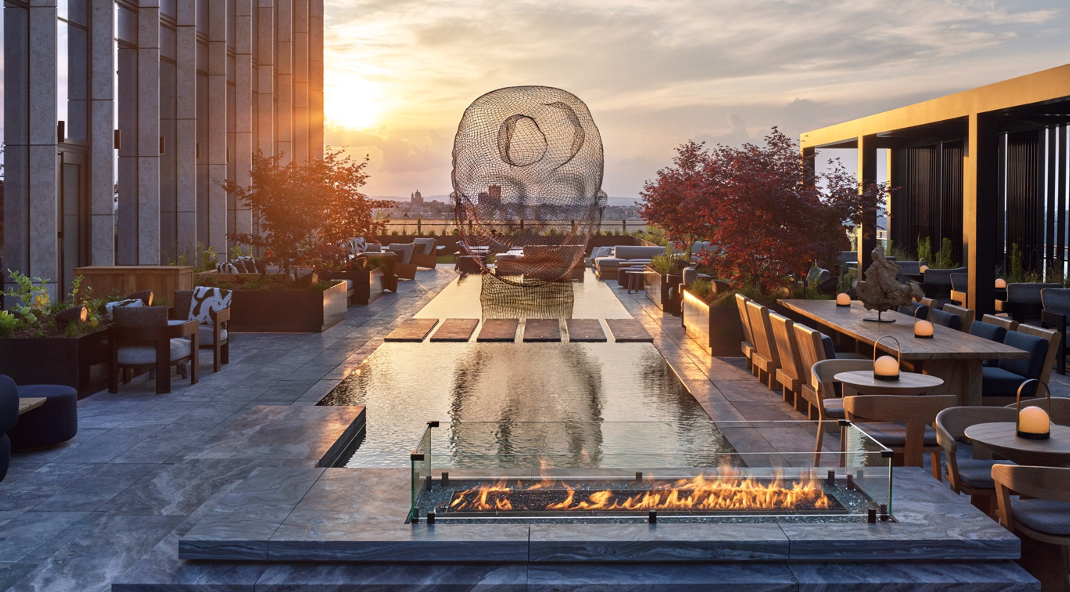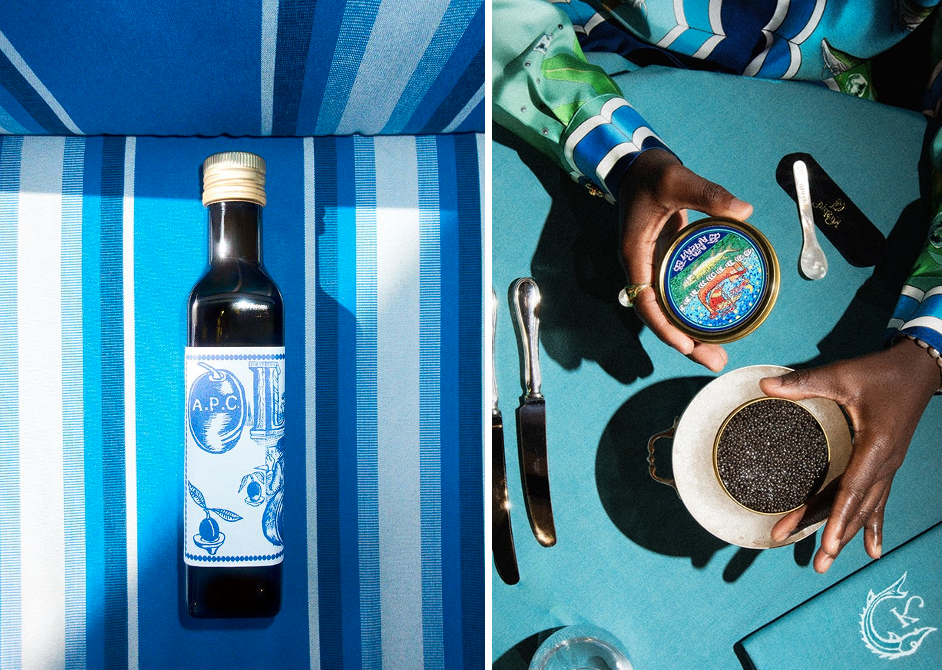
How are brands redefining luxury travel across destinations, journeys and hospitality?
When it comes to consumer priorities, travel is rising to the top. Over the last year, the sector has experienced an impressive bounce back and is playing an important role in people’s happiness, betterment and meaning.
The luxury traveller is spending more and travelling for longer. Luxury travel agency Virtuoso reveals that more than half of its 20,000 advisers believe their clients will spend more on trips this year.
This provides opportunities for brands to connect more deeply, and across various touchpoints, with luxury travellers. In this edition, we explore people’s priorities when making journeys, and uncover how to secure their loyalty, and maintain cultural relevance, after they return home.
In the new era of luxury travel, throwaway interactions are traded for transformative and meaningful moments.
: Travel’s Luxury Bloom: Travel is booming across the board, and the luxury star is bright. In 2023, global travel and tourism reached €2.2 trillion (£1.8 trillion, $2.4 trillion) according to the United Nations World Tourism Organisation, with almost half of European travellers increasing their budgets in the last few years. Many people are seeking the best experiences possible, and luxury travel is forecast to hit €2.1 trillion (£1.8 trillion $2.3 trillion) by 2030. Wellbeing, sustainability and immersive experiences are emerging as key considerations when people plan trips.
: Health is Wealth: Wellness experiences are becoming a cornerstone of opulent travel, with advancements in optimisation, sleep technology and nutrition transforming wellbeing into the ultimate luxury. The size of the opportunity is clear: The Global Wellness Institute projects that the wellness economy will reach £6.9 trillion ($8.5 trillion, €8 trillion) by 2027.
Luxury hospitality is placing wellness at the centre of its developments. Equinox Hotel’s new resort in Saudi Arabia is the world’s first integrated wellness property with a focus on sports, fitness and lifestyle. Highlights include a magnesium salt rooftop pool, a spa, beach club and Equinox fitness club.
Ensuring wellbeing is part of the journey and the destination, the Dior Spa Royal Scotsman is housed on an iconic Belmond train. Dedicated to wellness, the carriage boasts two tranquil rooms, with treatments designed to be the perfect complements to guests’ outdoor itineraries.
: Supercharging Sustainability: The ethical conversation is being heard loudly across industries. For younger people, sustainable practices are non-negotiable, and their vision of luxury is defined by authentic experiences, local integration and a clear commitment to environmental efforts.
Luxury resort group Six Senses is illustrating this future in action. Its Sustainability Fund commits 0.5% of the company’s revenue, 50% of its house-bottled water sales and 100% of its soft toy sales toward restoring habitats and improving the quality of life in the communities where they operate.
Continue the conversation: Discuss your client’s travel priorities. What kind of places and spaces are they travelling to, and what is their focus when they arrive?
 Image: Equinox Hotel Saudi Arabia
Image: Equinox Hotel Saudi Arabia
With travel experiences reframed as the ultimate luxury, high-end brands are transforming the sector by making trips, hotels and even destinations their own.
: Branded Destinations: Dior partnered with The Beverley Hills Hotel in honour of the Maria Grazia Chiuri summer 2023 capsule collection, which saw the redesign of the hotel’s famed pool area. The Dioriviera makeover included a pop-up boutique and exclusive beach essentials including surfboards, parasols and games. Italian car-maker Lamborghini has announced its venture into the property market with the forthcoming Tierra Viva in Spain – the company’s first European residences. The exclusive complex reflects the essence of Lamborghini’s vehicles, with leather accents and intricate glasswork.
: Making Hotel Suites Shoppable: Hotels are offering co-designed suites and high-service add-ons. With guests associating travel with positive experiences, these activations ensure that luxury brands are synonymous with good memories.
Membership accessories club Vivrelle teamed up with Four Seasons Hotel Group to provide guests with complimentary access to its collection of designer products from luxury brands including Dior, Prada and Gucci.
La Suite Dior in Paris is the only one in Dior’s iconic 30 Montaigne destination. Beyond this private space, guests can enjoy an exclusive tour of the high jewellery ateliers, overnight boutique shopping and a gourmet menu by chef Jean Imbert.
: Guestlist Getaways: Luxury brands are treating guests to curated getaways, and these invitation-only events are seen as key experiences. ‘People who go on these trips fall in love with the brand, and those who don’t go on those trips want to,’ explains wealth and luxury advisor Oliver Williams.
One example is luxury house Louis Vuitton, which flew clients to Marrakech in Morocco to showcase its Spirit fine jewellery collection. Very important customers (VICs) enjoyed a celebrity-studded evening with a private poolside dinner and early access to the collection.
Continue the conversation: Have your clients ever travelled with a luxury brand or enjoyed a branded hospitality stay? Discuss what makes these activations successful.
 Image: A.P.C. extra virgin olive oil; Casablanca x Caviar Kaspia
Image: A.P.C. extra virgin olive oil; Casablanca x Caviar Kaspia
Luxury brands are embracing food’s new cultural cachet. They are opening up experiences to new audiences and providing value through product collaborations and, at times, humour. With food now the first choice when consumers crave indulgence, it’s no surprise that the worlds of fashion, luxury and food are intertwining.
: Food Meets Pop Culture: Global research from Deloitte highlights that people are three times more likely to have made food or drink their recent splurge purchase, rather than personal care. Gucci tapped comedian and YouTube personality Amelia Dimoldenberg – known for her Chicken Shop Date series – to host its backstage Milan Fashion Week content last year, providing an irreverent approach.
: Trademark Tastes: Luxury houses are employing couture-level culinary activation. Examples include A.P.C’s ultra-exclusive olive oil, produced by the Moulin des Ombres mill at the Château de Montfrin in France, and Casablanca’s branded caviar, created in collaboration with Caviar Kaspia. Dior’s own Monsieur Dior restaurant in Paris has been created with chef Jean Imbert and demonstrates the success of fashion’s expansion into different realms of luxury. The brand is set to open a new restaurant in the culinary destination of Osaka, Japan, in 2025, with acclaimed chef Anne-Sophie Pic (of Pic fame) at the helm.
: Designer Dining Clubs: Innovators are making dining experiences even more exclusive. Harrods is delving in to dining excellency, with its first members’ club – The Residence – in Shanghai. It includes an exclusive Gordon Ramsay restaurant where guests have access to the world’s most exclusive whiskies. Members will also enjoy private dinners and masterclasses hosted by partners.
Continue the conversation: Is food, drink and dining a luxury experience for your clients? Explore their experience with culinary experimentations and collaborations.
Trends intelligence, research, and insights – on demand. Actionable foresight across 20+ sectors.
Book a demo to view the platform.